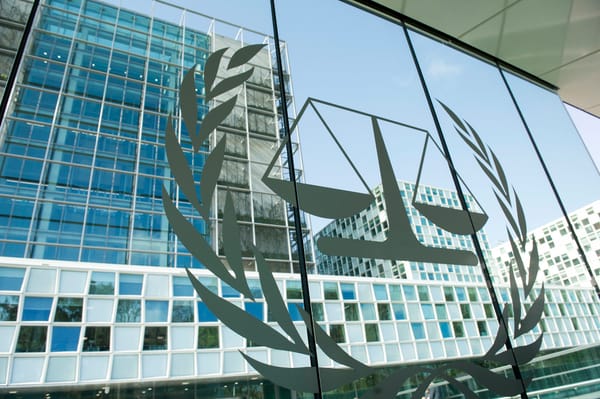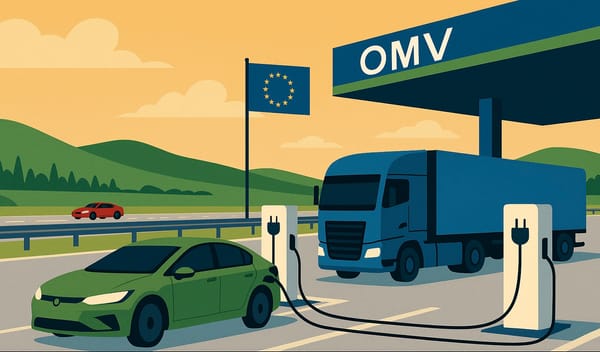
Mishandling of immigration has propelled a party with direct Nazi roots into power in Austria - CET Opinion
The outcome of Austria’s election is undeniably historic—not just for Austria, but for the whole European Union. The Freedom Party of Austria (FPO) is not the first far-right party to gain power in the EU in the 21st-Century, nor will it be the last, but it is unique due to its direct Nazi roots.
While Germany’s Alternative fur Deutschland (AfD) and the prominent Dutch far-right parties were founded in the 2000s, the FPO was established in 1956 by Anton Reinthaller, a former SS officer and Nazi official, and other former Nazis.
Although the direct connection with Nazi ideology has faded over time, it never completely disappeared. This underlying legacy remains evident from recent scandals involving FPO members expressing antisemitic or Holocaust-denying sentiments.
Immigration driving political shifts
Expressing condemnation of this victory is easy, but it seems more important to face the real causes behind it. Parties like the FPO and the AfD have long attracted a base of supporters with extreme views, but historically they have formed too small a circle to bring these parties close to power.
What tipped the scales was support from the former political centre: people who are not necessarily racist, antisemitic, or aligned with extreme ideologies. Many even feel uncomfortable voting for the far right but have lost trust in mainstream politicians, primarily over one issue: immigration.
The rise of illiberal politics globally has multiple causes, of course. We live in an increasingly unpredictable world, marked by many concerning issues and conflicts as well as persistent economic trends that particularly impact the Western middle classes.
Yet, far-right victories often occur in countries where inflation or economic instability is less of a concern compared to other parts of the world and where immigration, rather than economic distress, is the most significant driver of these political shifts.
Populists make hay while opponents procrastinate
Immigration has long been the ladder to power for far-right parties. Hungarian Prime Minister Viktor Orban, often seen as a symbol of the threat posed by illiberalism in Europe, solidified his power in Hungary during the European migration crisis in 2015 by building fences and rejecting the EU’s migrant distribution scheme.
In spite of his government’s mismanagement of the Hungarian economy, which is now a constant headwind for a country that once led but now lags its neighbours, anti-migrant rhetoric continues to work for Orban at the ballot boxes.
Just as Orban has profited from the lack of capable opposition in Hungary, FPO and other far-right parties gain primarily from their opponents’ towering mistakes. Mainstream European politics has consistently miscommunicated and mismanaged immigration, failing even to address the issue adequately. Denying or downplaying immigration as a problem has driven many voters from the centre to the extremes.
The FPO, like Germany’s AfD, has framed immigration as a threat to the welfare state and personal safety. This resonates with former mainstream voters who might not be ideologically aligned with the far right but are deeply concerned about how unchecked immigration might affect their quality of life and the security of their communities.
Europe needs well-constructed, meritocratic framework for legal migration
We should all agree that a free world—where people can choose where they live and where talented and motivated individuals can move to their country of choice—is better than a segregated one. Europe, in fact, desperately needs capable additions to its workforce and stands to gain both economically and culturally from a more diverse society.
Yet, even if we accept this basic principle, there remain mountains of unresolved and poorly addressed issues. Migration is beneficial, but illegal migration is far from being sustainable and should not be acceptable. Welfare democracies cannot sustain uncontrolled immigration without risking the long-term viability of their welfare systems. Illegal migration, by its very nature, is uncontrolled and brings with it the risk of increased crime. Even if only a small number of migrants pose a threat, people will not tolerate any perceived danger to their safety.
What Europe needs is not to stop migration but to make it a legal, structured process. Here lies the greatest challenge to any viable solution: the lack of a well-constructed, meritocratic legal framework that allows capable individuals and families to enter Europe legally. As long as illegal inflows remain uncontrolled, the system cannot even begin to manage a working solution for sustainable immigration on meritocratic principles, which could provide opportunities for people from any part of the world.
Immigration is further complicated by its ties to violent conflicts that the developed world is equally unable to prevent. There is much to discuss and much to fix. Until these questions are adequately addressed and realistic solutions are offered, the far right will likely continue to gain ground, pushing even the most heinous extremist minority – dumped into the dustbin of history nearly 80 years ago – back into power.





